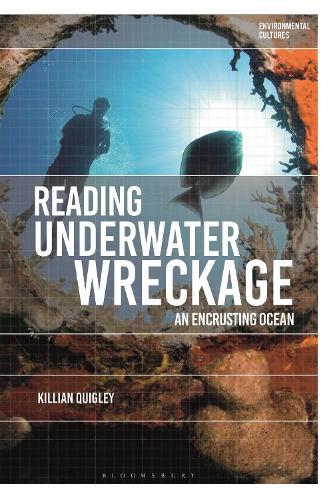
Reading Underwater Wreckage: An Encrusting Ocean
(Hardback)
Available Formats
Publishing Details
Reading Underwater Wreckage: An Encrusting Ocean
By (Author) Killian Quigley
Bloomsbury Publishing PLC
Bloomsbury Academic
12th January 2023
United Kingdom
Classifications
Professional and Scholarly
Non Fiction
Nature in the arts
Maritime history
910.452
Physical Properties
Hardback
216
Width 156mm, Height 234mm
Description
Presenting a novel and needed theoretical model for interpreting shipwrecks and other drowned fragmentsthe histories they tell, and the futures they presageas junctures of artefact and ecofact, human remains and emergent ecologies, this book puts the environmental humanities, and particularly multispecies studies, in close conversation with literary studies, history, and aesthetic theory. Earths oceans hold the remains of as many as three million shipwrecks, some thousands of years old. Instead of approaching shipwrecks as either artefacts or ecofacts, this book presents a third frame for understanding, one inspired by the material dynamism of sea-floor stuff. As they become encrusted by oceanic mattersome of it living, some inanimateanthropic fragments participate in a distinctively submarine form of material relation. That relation comprises a wide, and sometimes incalculable, array of things, lives, times, and stories. Drawing from several centuries of literary, philosophical, and scientific encounters with encrustationsas well as from some of the innumerable encrusted art-forms that inhabit the sea floor this book serves anyone in search of better ways to perceive, describe, and imagine submarine matters.
Reviews
Reading Underwater Wreckage is a book that does not operate at the surface; it is not an overview. Instead, The Encrusting Ocean introduces a dynamic methodology in oceanic interpretation that focuses on submerged artifacts. The book's encrusted theory unfolds as a valuable addition to the growing body of work in the blue humanities and new materialism. It is a book that inevitably will push the blue humanities to greater depths. -- Professor Sid Dobrin, University of Florida, USA
This book is a remarkable confluence of material culture, environmental humanities, and literary studies but at its heart is the work of the sea itself. Quigley invites us to sift through the de debris of the seafloor with new feelers, new eyes, new conceptual prosthetics. We are invited to rethink the sea as archive and artist, and to reconsider what sunken treasure augurs in a time of rapid cultural and environmental change. * Astrida Neimanis, University of British Columbia, Canada *
Author Bio
Killian Quigley is research fellow at ACU's Institute for Humanities and Social Sciences, Melbourne, Australia and honorary fellow at the Sydney Environment Institute, University of Sydney, Australia, He is co-editor, with Margaret Cohen
